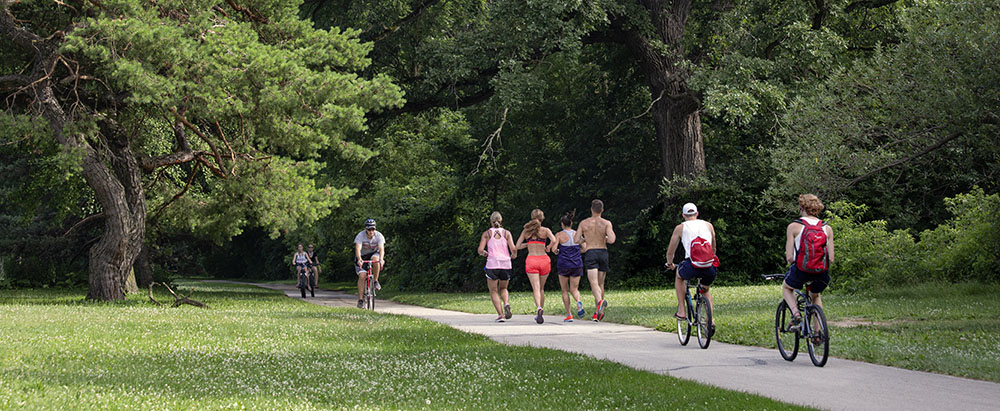
Trail Fees Proposed for Milwaukee County Parks – Then Dropped for Now
February 19, 2021 | Topics: Issues, Spotlight
Photography by Eddee Daniel
Will walkers, joggers and bicyclists continue to enjoy free and unfettered access to Milwaukee County’s public trails? Maybe.
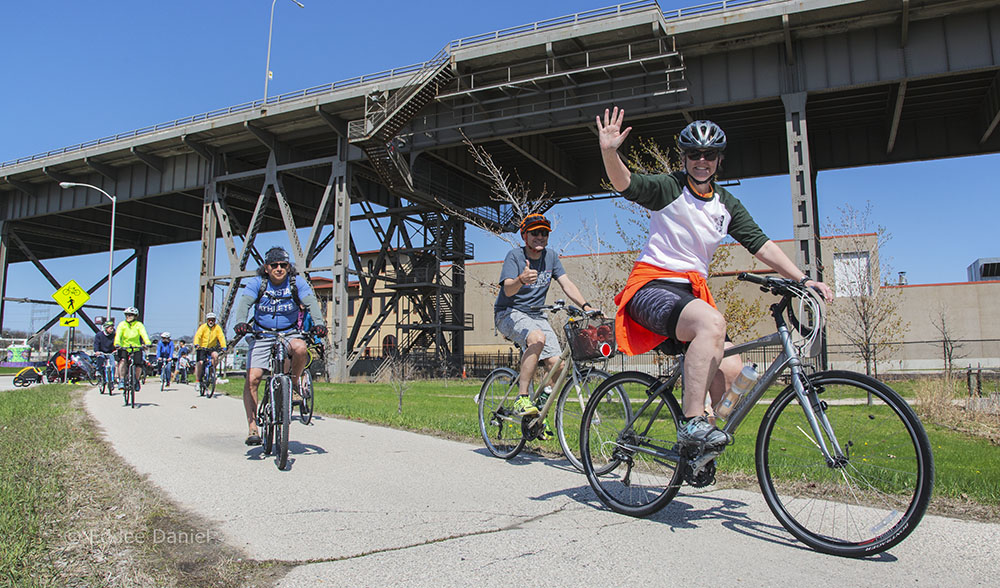
A 2020 Milwaukee County Parks Survey posed this question: “Would you be willing to pay to use trails if it resulted in improvements and expansion?” Milwaukee County Parks conducted the randomly accessible online survey from mid-December 2020 until January 10, 2021.
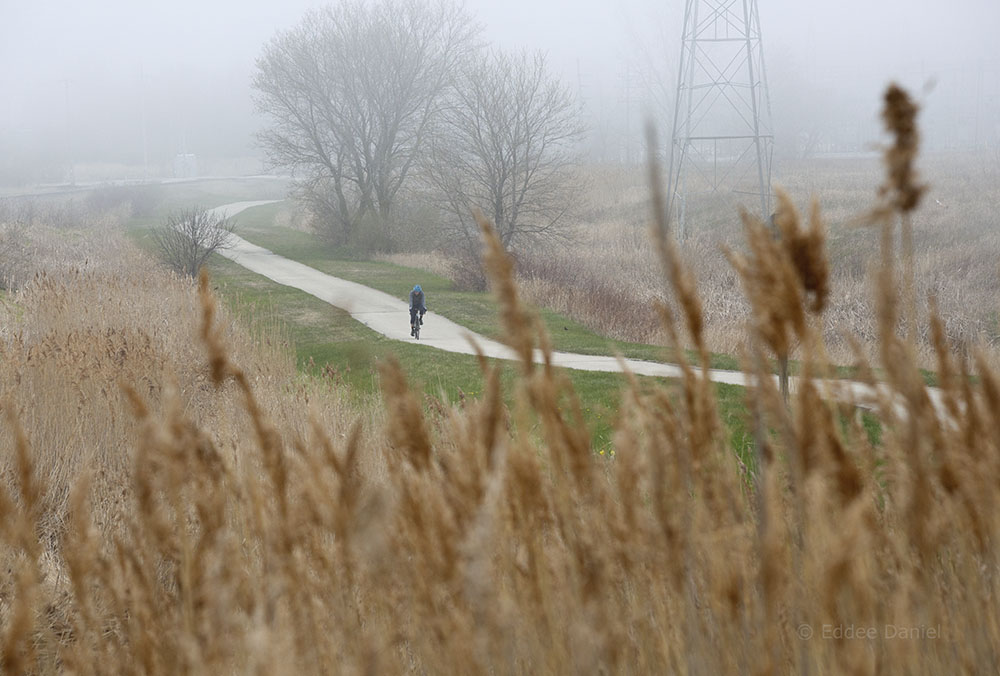
When parks department officials were asked why this question was posed, Jeremy Lucas, Milwaukee County Parks’ director of administration and planning, responded that parks staff are “in an early exploratory phase for the implementation of a trail pass.” Lucas elaborated: “Due to the spike in use of our trails during 2020 and the unexpected and overwhelming support of the GoFundMe campaign for the Zip Line Sinkhole, Parks decided to inquire more broadly about the support for a [trails] pass…to gauge interest in…a revenue stream that would support continued trail maintenance and/or expansion.”
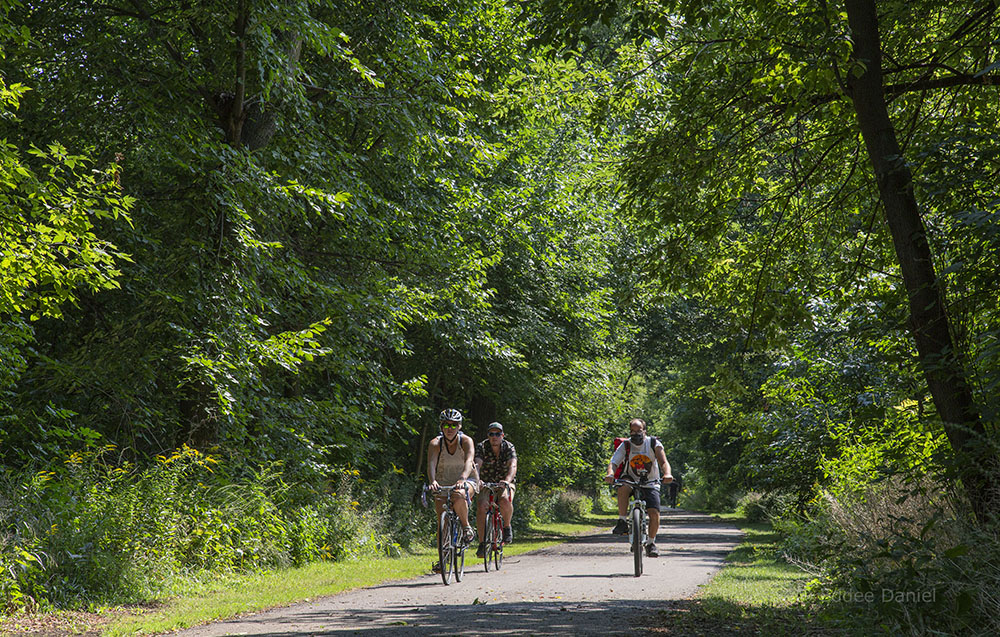
But in response to follow-up questions to parks officials, County Executive David Crowley and several supervisors, a parks official back-pedaled on the issue. In an email, Jen Francis, deputy director of the parks department, wrote several days later, “We are not looking at implementation of a trails pass in the immediate future, and, furthermore, if a program like this was implemented it would likely be voluntary.” She said she was responding “on behalf of the Parks Team and County Executive David Crowley’s Administration.”
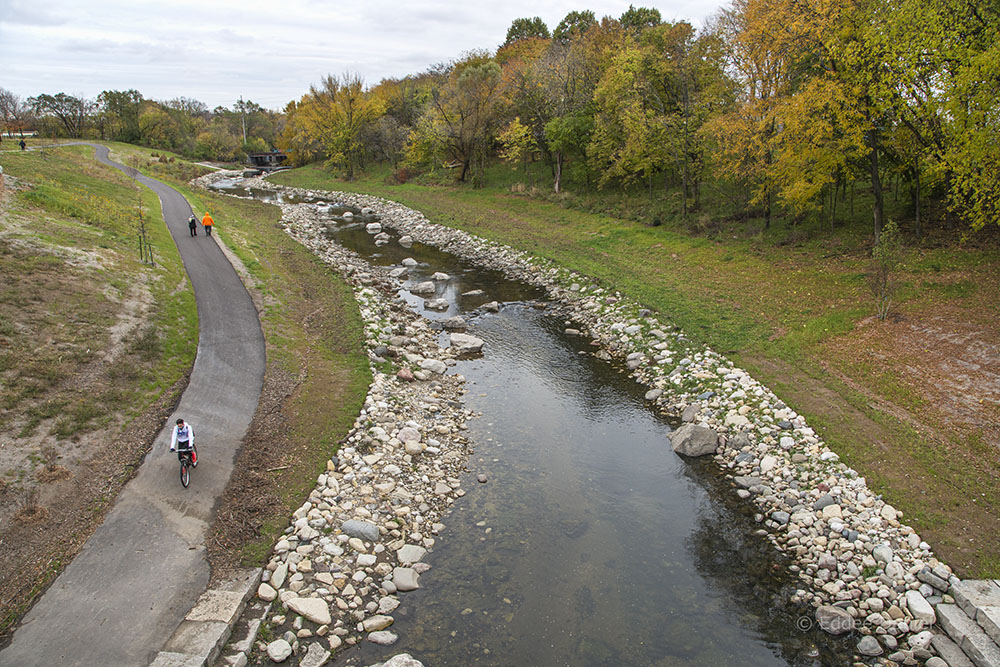
When asked his opinion about trail fees, Milwaukee County Supervisor Sheldon Wasserman, chair of the Parks, Energy & Environment Committee, said by phone, “I absolutely do not want trails to be taxed or tolled. That would be devastating for our parks and offensive to many people who rely on them. I would never support that.”
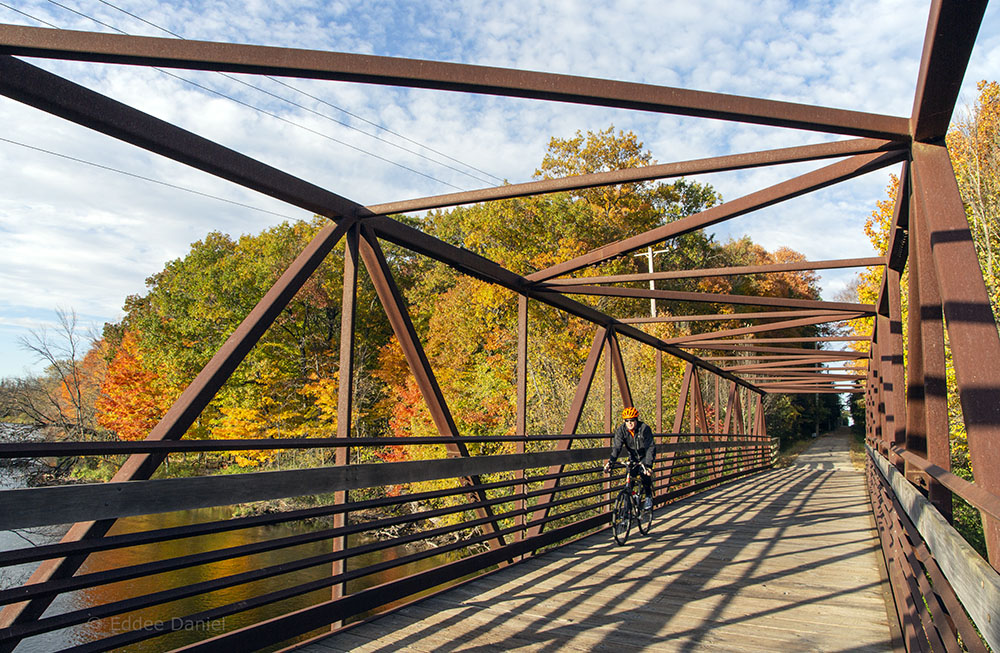
A regional network of trails
If fees were imposed to use Milwaukee County trails, whether for pedestrians or cyclists, it could disrupt the network of trails in southeastern Wisconsin. In addition to Milwaukee County’s Oak Leaf, Beerline, KK River, Forked Aster, and Mountain Bike Trails, this extensive network includes the Hank Aaron State Trail, Ice Age National Scenic Trail, Ozaukee Interurban Trail, Bugline Recreational Trail, New Berlin Recreation Trail, Eisenbahn State Trail, Pike River Pathway, West Allis Cross Town Connector Trail, Brookfield Greenway Trail System, Seven Waters Bike Trail, Lake Country Recreational Trail, and trails in parks such as Havenwoods and Lakeshore State Park—which are all free. Many of these trails interconnect and it is not always clear where one ends and another begins.
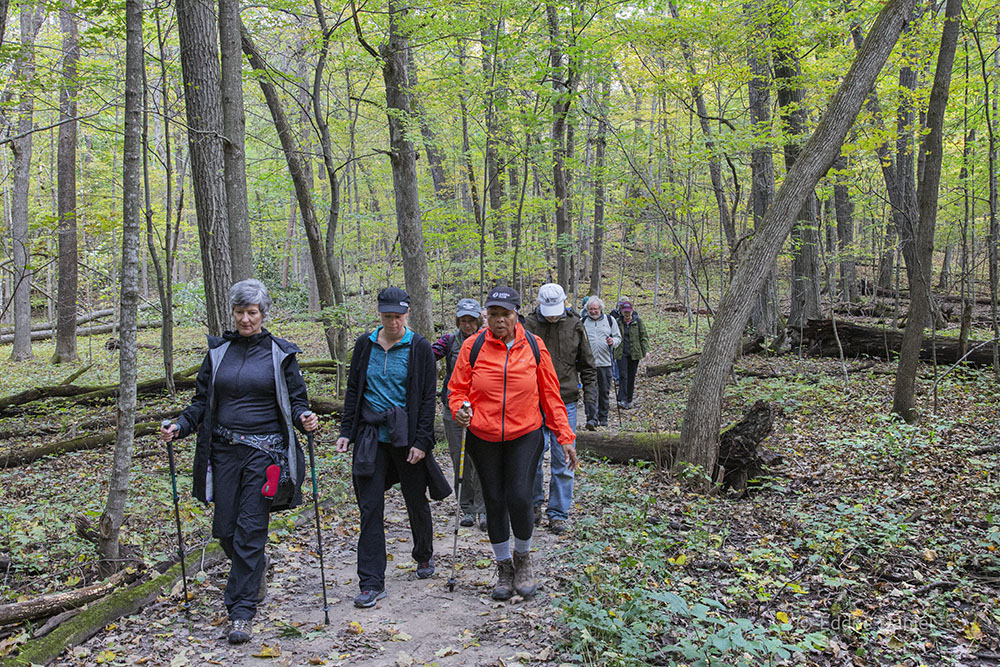
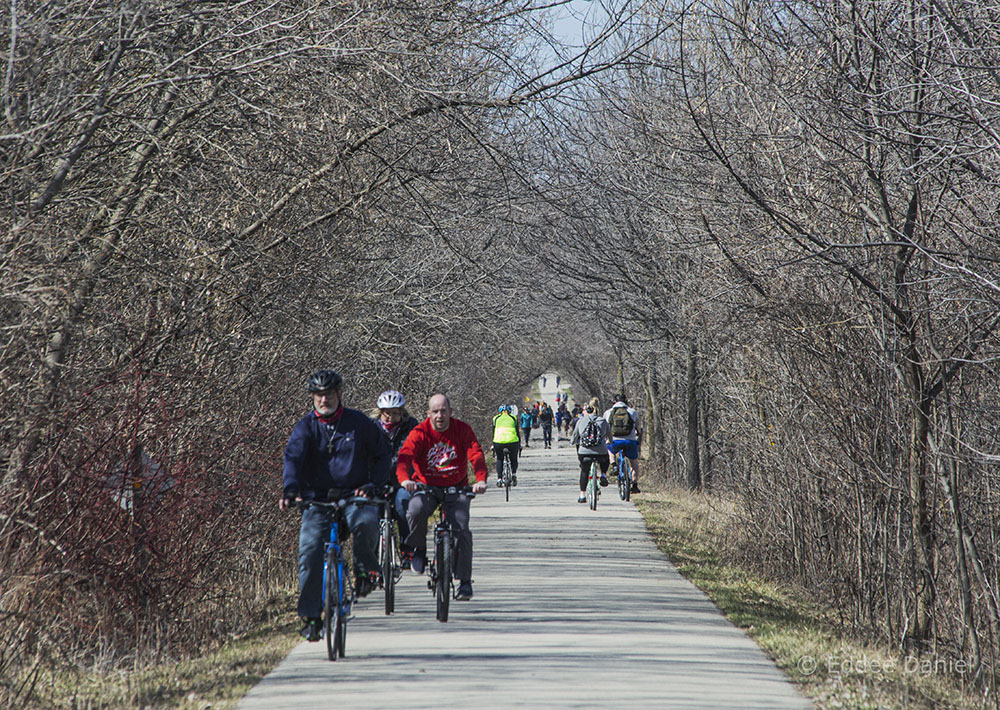
Equity Issues
Charging to use trails raises “inequity and unsustainability issues,” Kevin Roth, vice president for research for the National Recreation and Parks Association (NRPA), said during a phone interview. He expressed surprise that the idea was being floated. “It’s not common…. It seems to run counter to everything that [the mission of] parks and recreation is about. Parks and public spaces are for everyone. Public trails are meant to be resources for all.” People turn to green spaces for health, respite and socializing, so trail fees impose a monetary hurdle to engaging in basic life-enhancing activities. Roth said that charging for any trail-related activities could confuse people and discourage use.
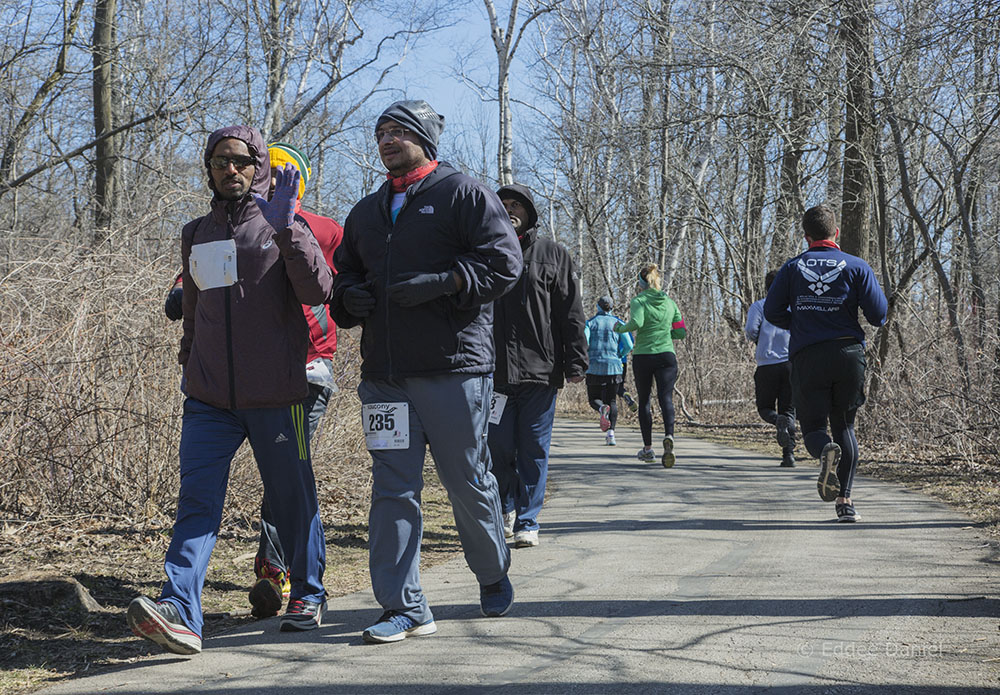
NRPA’s Roth said, “Even if pedestrians would not be required to pay fees, charging for some uses could drive wedges among different types of trail users, between haves and have-nots.” He said that walking and running are by far the most common uses of trails. He also raised another equity concern—that subsequent investments in trails would likely be influenced by which trail users are charged fees. “Let’s say you charge mountain bikers; it seems unlikely that revenue raised from that would be used to build trails in areas that are underserved to begin with.”
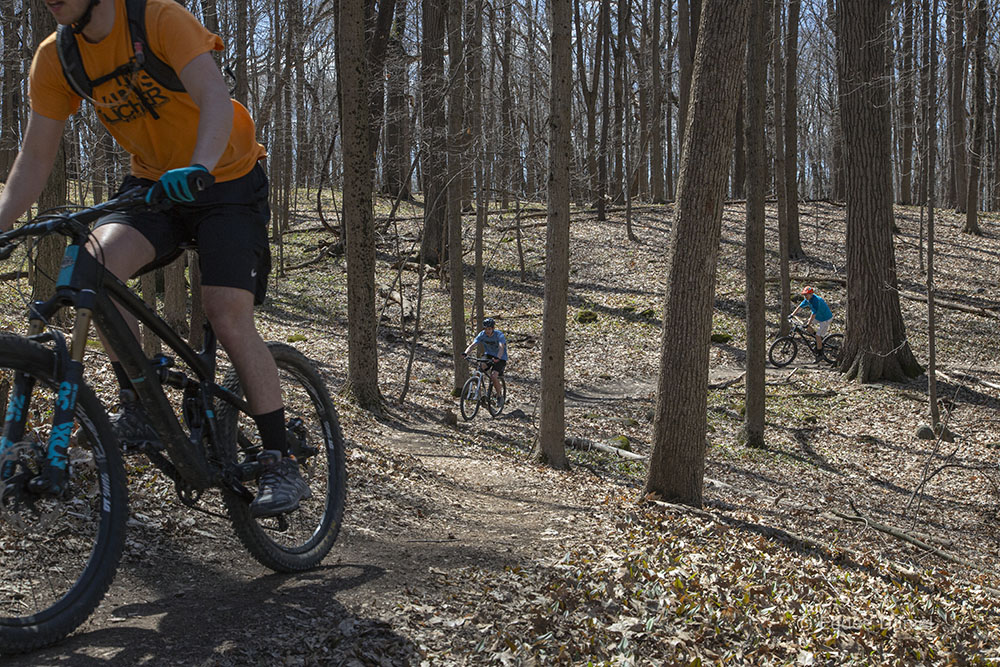
Roth emphasized that he understands “the financial challenges that parks agencies face. And the pandemic-induced recession doesn’t help.” However, fees to use trails “set up a divide between those who can afford to pay and those who can’t…. It’s almost like metering a park,” he said. In fact, former Milwaukee County Executive Chris Abele’s proposed plan to put parking meters in Milwaukee County’s parks was roundly rejected in 2018. Roth said there are much more sustainable and equitable ways to fund parks. (See companion article on equitable funding resources.)
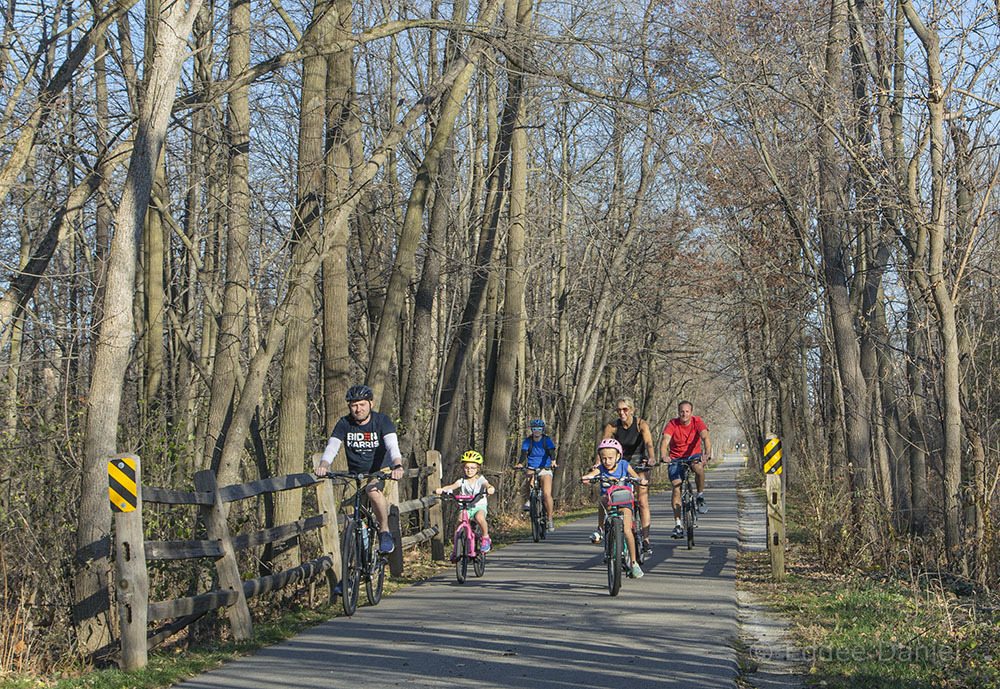
Peter Harnik, founder and retired director of the Trust for Public Land’s Center for City Parks Excellence and ParkScore Index, commented on trail fees: “Almost no government anywhere charges for the use of trails—except for the state of Wisconsin. That’s probably why Milwaukee even thought of the idea.” A Wisconsin state trail pass is required for all people age 16 or older who are biking, cross-country skiing, horseback riding or in-line skating on certain state trails—but not those in Milwaukee County.
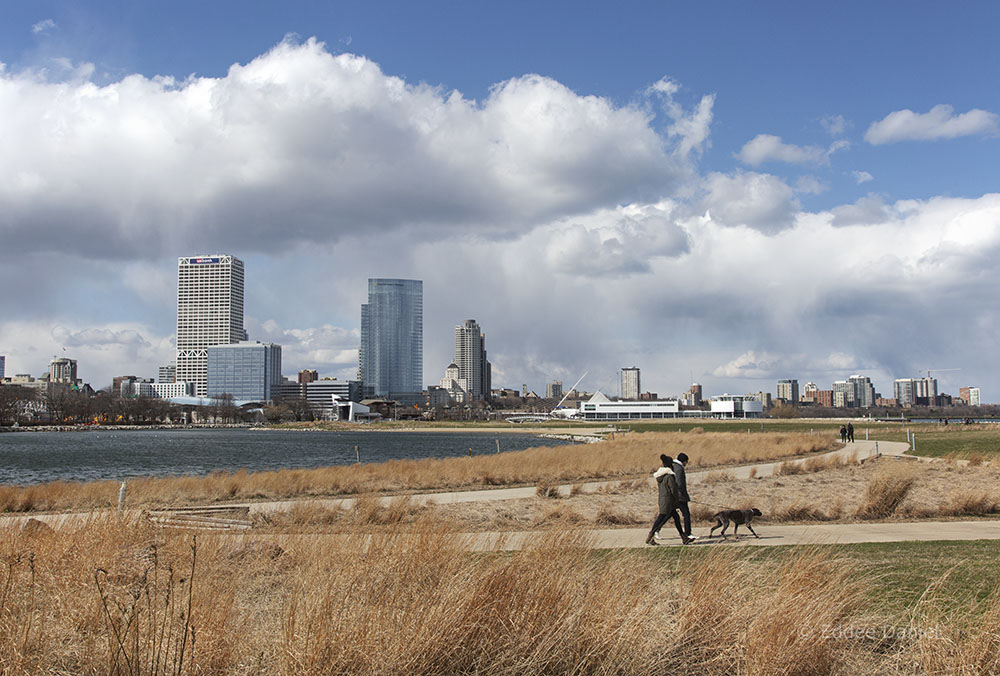
Feasibility Hurdles
Another complication is that trails are “part of a region’s overall transportation infrastructure,” said Roth. Many trails have been built with federal transportation grants, including millions in funding over decades for Milwaukee County’s Oak Leaf Trail.
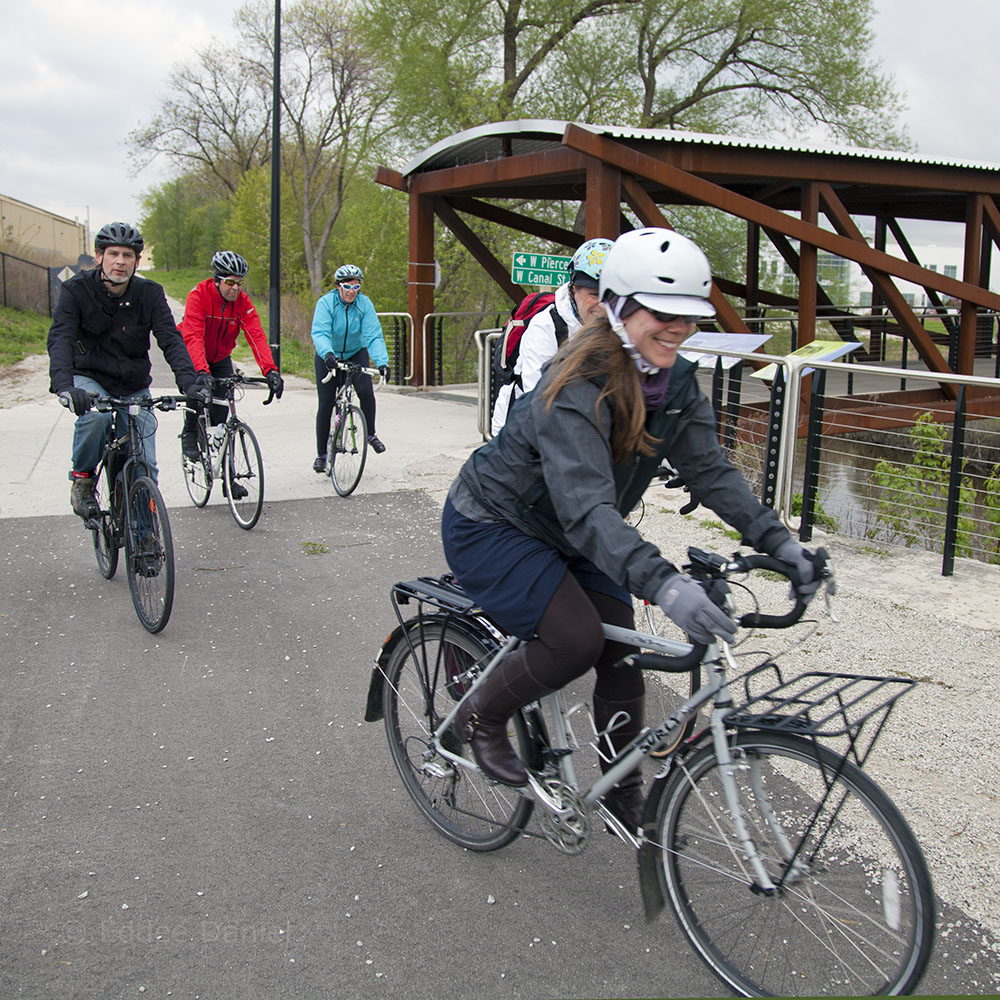
Many people rely on trails for commuting. A series of videos called “City Parks: America’s New Infrastructure” features mayors, park managers and design professionals describing the indispensable roles that parks and trails play as critical infrastructure. People walk and bike on trails for transit, just as they use roads. This decreases reliance on motor vehicles, their infrastructure costs, and carbon emissions.
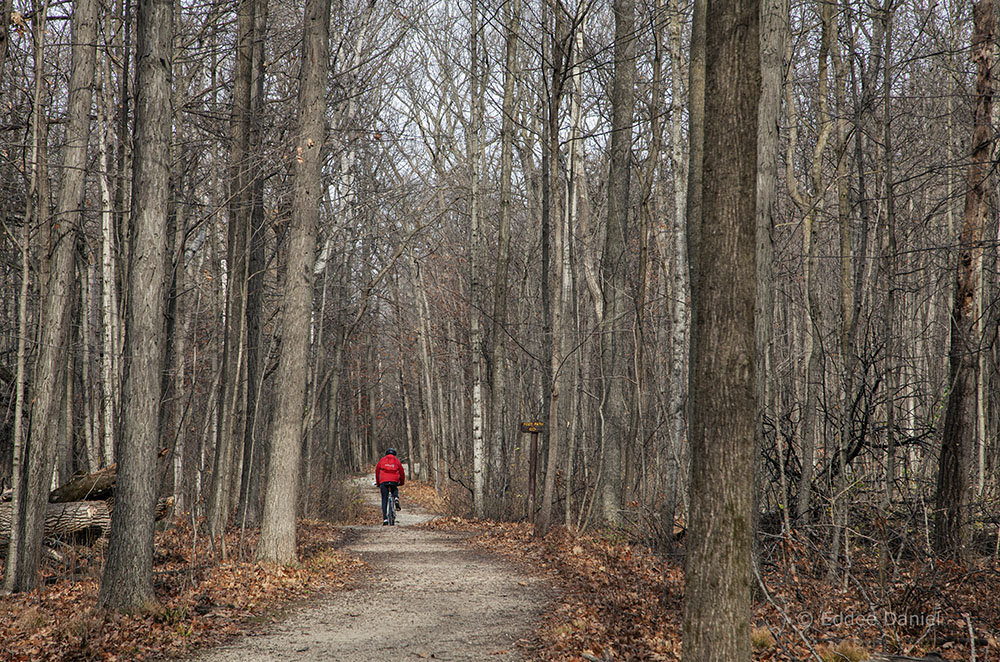
Local trails advocate Dave Boucher said that monitoring a Milwaukee County trails program would be “completely unfeasible, since these trails do not have gated entry points. The enforcement costs of such a program easily could exceed any revenue generated.”
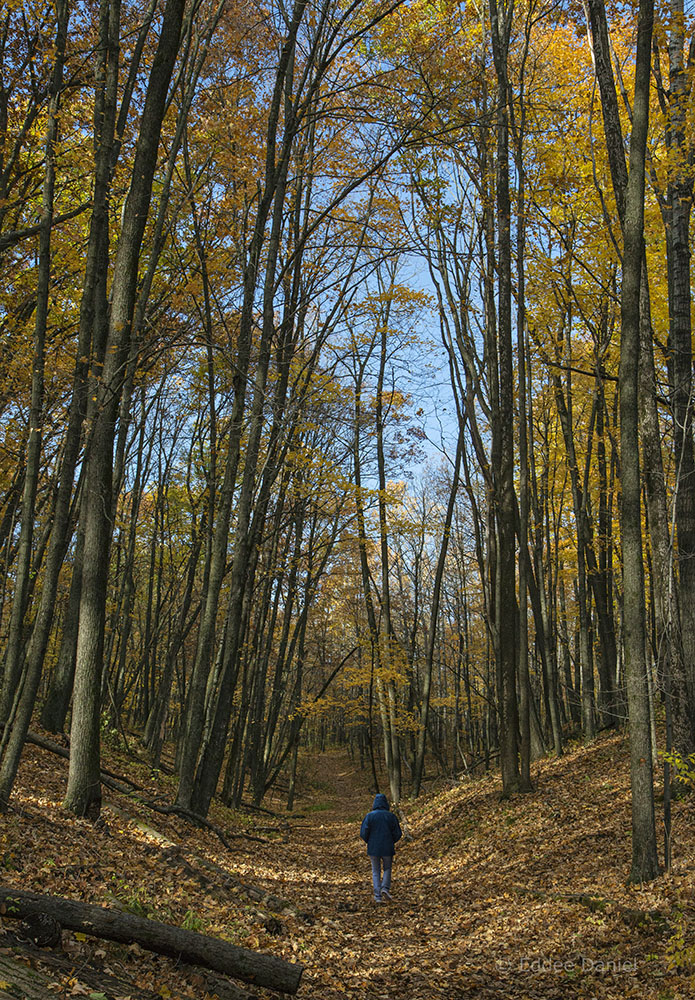
RoseMary Oliveira, a board member of Milwaukee River Advocates, a voting member on the Milwaukee County Trails Council, and a former Milwaukee County Parks policy analyst, opposes fee-based trails and thinks “any program would be impossible to administer. It would also exacerbate existing economic and social inequities.” Some trails council members, however, have said they would be open to a trail pass for certain areas.
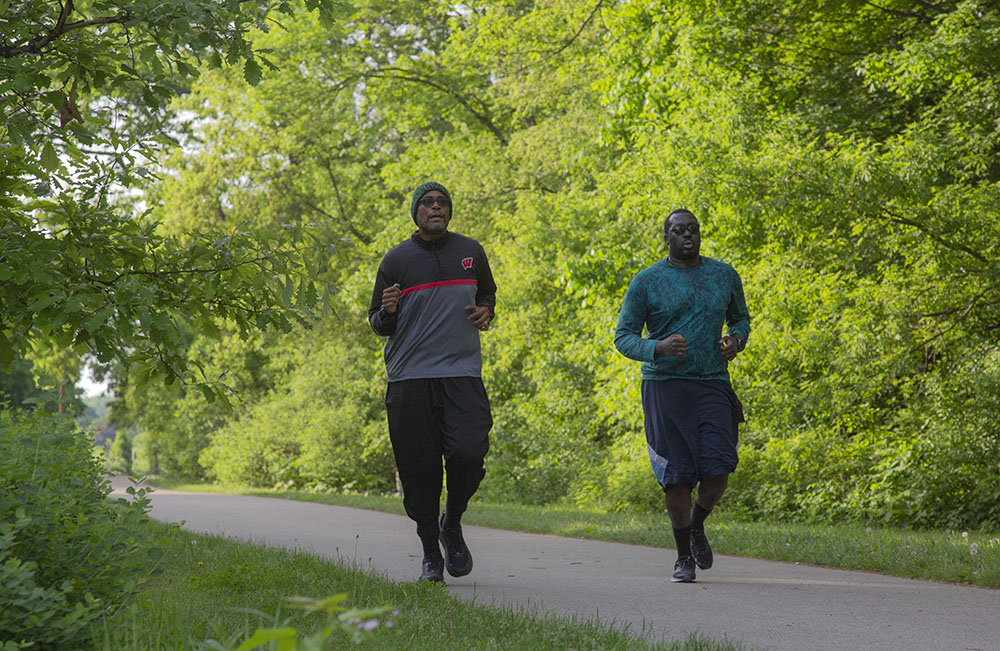
Milwaukee County currently ranks 71st of Wisconsin’s 72 counties in public health-outcomes. County Executive David Crowley’s administration has presented a vision that “by achieving racial equality, Milwaukee will be the healthiest county in Wisconsin.” Oliveira doubts that “charging fees to use trails would do anything to promote public health. Instead, there needs to be more political will to adequately fund the county parks system.”
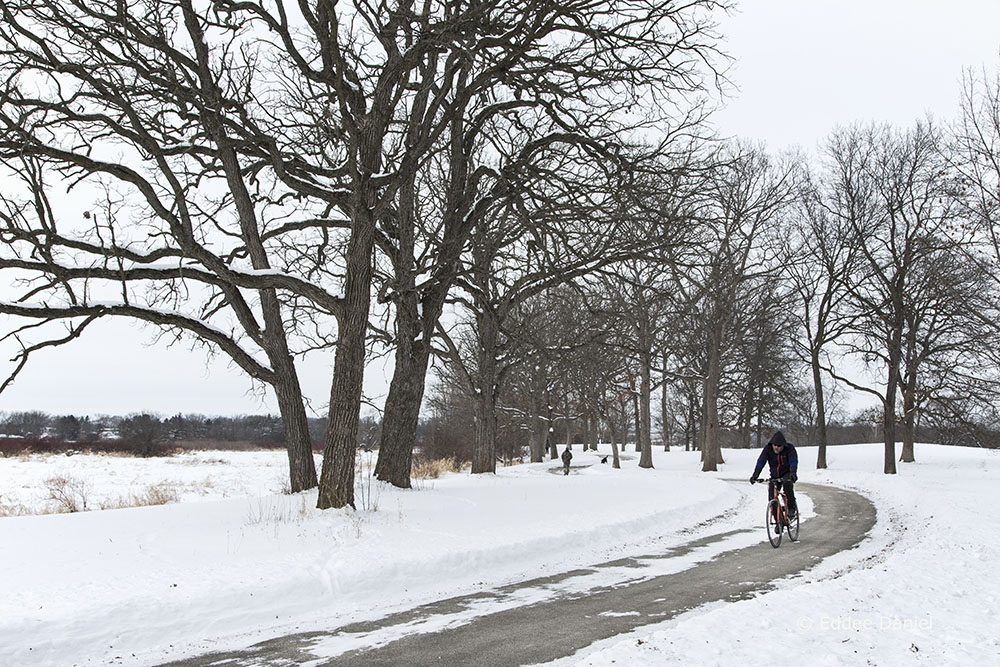
Advocacy for Trails
One well-established national benchmark for promoting public health in cities is for every resident to be within a 10-minute walk of a public park or trail. A 2017 study by the Rails-to-Trails Conservancy found that 40 percent of Milwaukee residents lack good bike routes that can connect them to grocery stores, schools, libraries and hospitals within two miles.
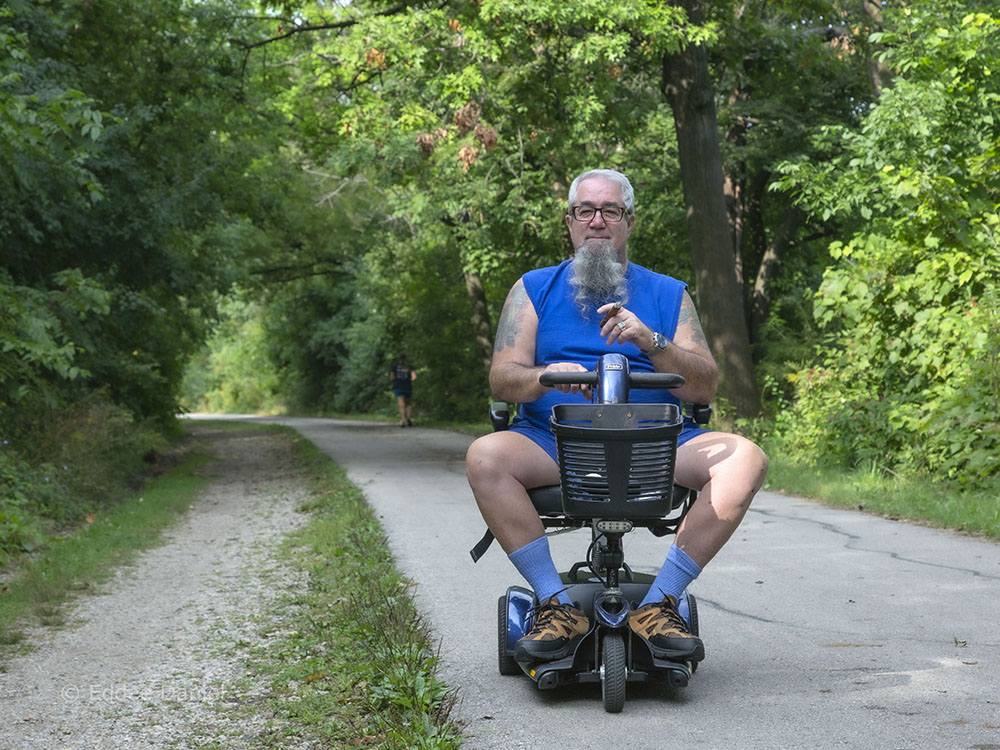
Milwaukee County’s trail system includes well over 125 miles of paved and unpaved trails. Most paved trails are “multimodal,” meaning that pedestrians and bicyclists share them. Milwaukee County Parks lists five “single-track mountain-bike trails” totaling 13 miles.
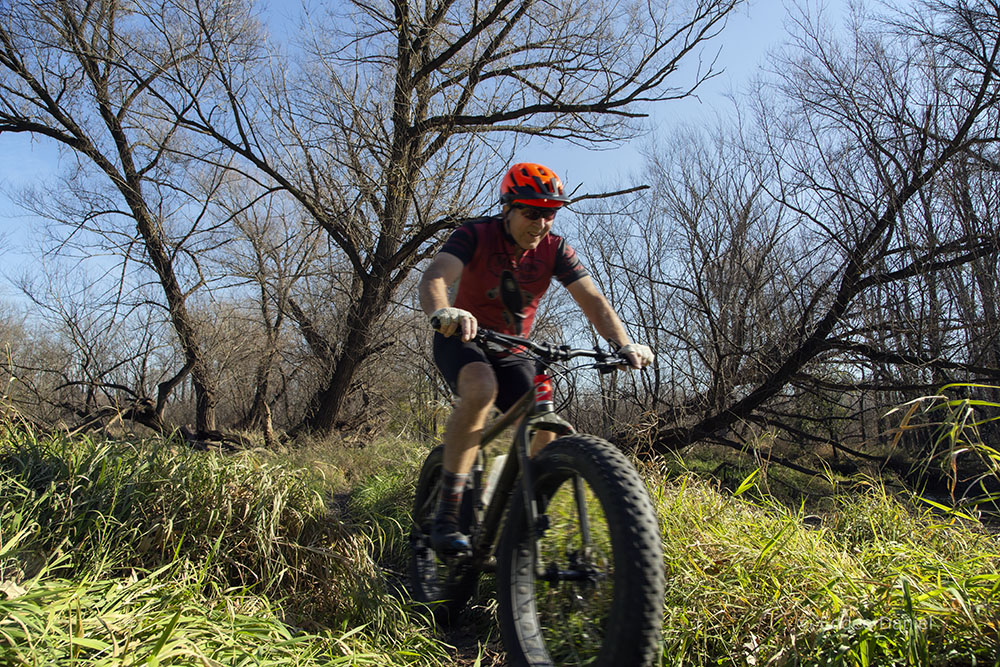
Responding to a query about trail fees, Supervisor Marcelia Nicholson, Chair of the Milwaukee County Board of Supervisors, said in a statement, “Milwaukee County urgently needs a permanent solution to our revenue crisis, which is why I have asked Governor Tony Evers to include, in his budget proposal, additional sales tax authority for any municipality that needs it.”
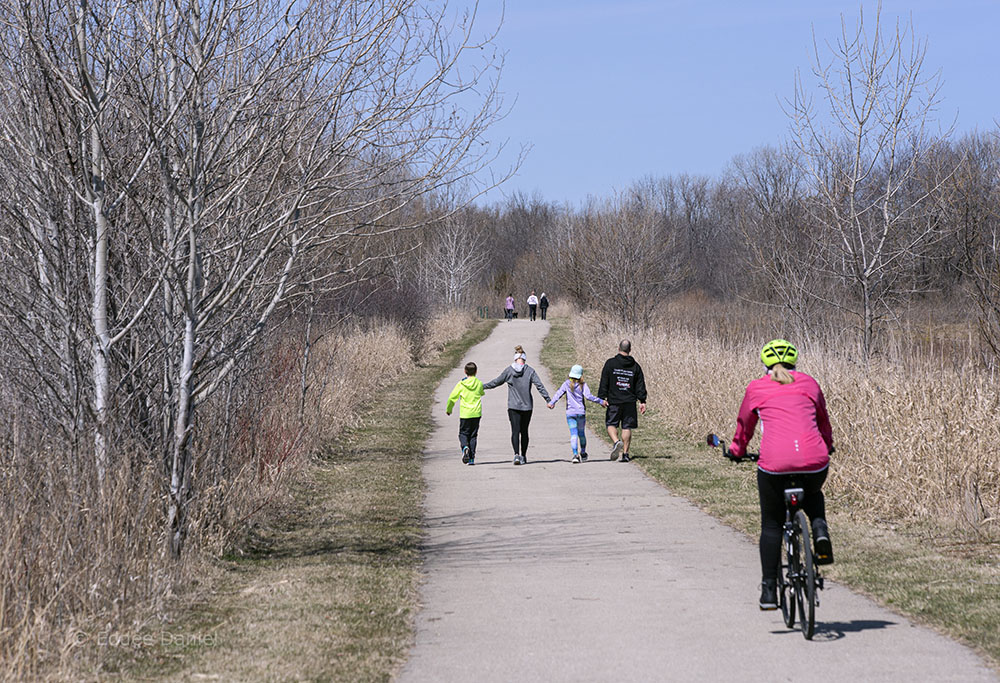
Addendum: On Friday, February 12 Governor Evers announced a proposal to allow counties and municipalities to increase sales taxes up to 6.5%.
This story is a revised version of one that first appeared in the Shepherd Express on January 25, 2021. To read the complete original story click here.
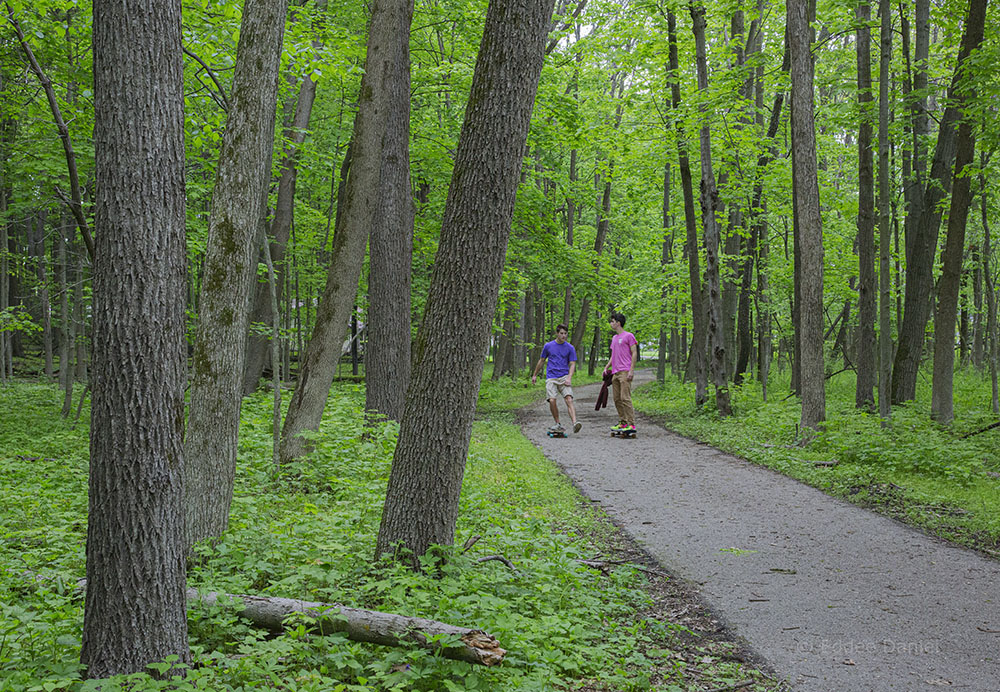
A companion article by Virginia Small explores ways that U.S. municipalities are addressing equity issues related to trails and parks, including funding for them.
Virginia Small is a lifelong writer and veteran journalist. She has served as a senior editor for a national magazine, a staff reporter and cultural reviewer for several newspapers, and a contributor to many national and regional publications. Eddee Daniel is a board member of Preserve Our Parks.
The featured photo at the top is of the Oak Leaf Trail, Hoyt Park, Wauwatosa.

